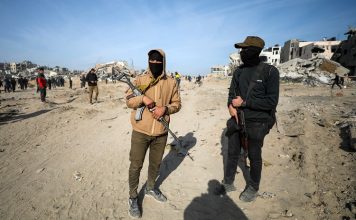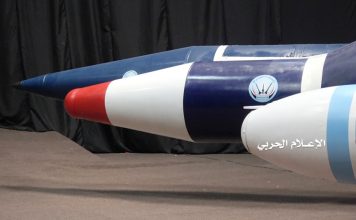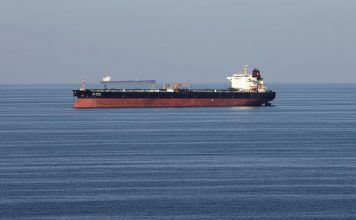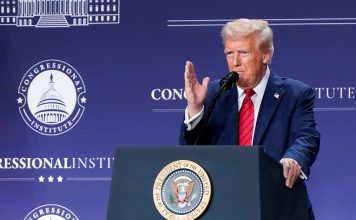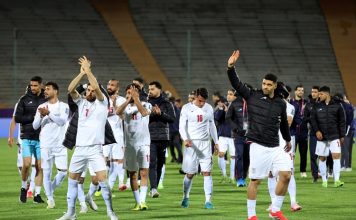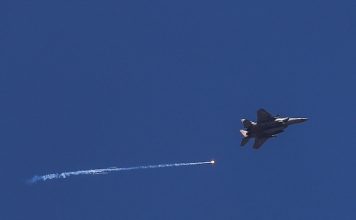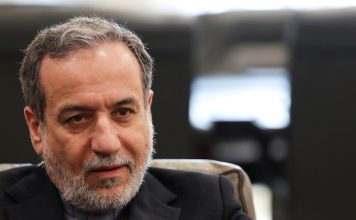Iran is witnessing a surge of protests by workers in various sectors, including nurses, gold merchants, retirees, teachers, truck drivers, and oil and gas employees. These protests, which have been ongoing since 2017, have not received as much support from trade unions in the United Kingdom as the anti-apartheid movement in South Africa did.
To understand why, Kayhan-Life / Kayhan-London spoke with Rt Hon John McDonnell, the Labour MP for Hayes & Harlington since 1997 and former Shadow Chancellor of the Exchequer from 2015 to 2020. A prominent figure in UK politics, he is the Chairman of the ‘Solidarity with the Workers Movement in Iran’. The group dedicated to promoting solidarity with workers in Iran was formed following the Mahsa uprising in 2022. It includes members of Parliament and active members of the UK labor and trade union movement.
Mr. McDonnell, who is also Secretary of the National Union Journalist Parliamentary Group, criticized the British government for ignoring the activities of the regime in Iran. He emphasized that the UK must recognize the dangerous levels of activity by the Islamic Revolutionary Guards Corps and take action, stating, “These are terrorists operating in our country. You should be suppressing them in the same way you would other terrorist organizations.”

He also highlighted the upcoming general elections and the need for a security debate about Iran, “the Labour Party leadership understands that we need to ensure the safety of Iranians in this country because the Islamic regime’s tentacles are stretched right the way across Europe.”
A recent YouGov poll of British voters for the Times newspaper showed that the Labour Party leading the Conservative Party by 30 points in the next general election.
How did ‘Solidarity with the Workers Movement in Iran’ come about?
Several of us, both members of Parliament and active members of the UK Labor and Trade Union movement, have taken an interest in Iran. Our solidarity support was intermittent, often only emerging during crises. We made statements about when people have been unjustly arrested and imprisoned for exercising basic trade union or labor rights. This sporadic support was not enough. We needed to hold the UK government accountable for its role in addressing these human rights violations.
Solidarity with the Workers Movement in Iran’ was set up a couple of years ago by a group of MPs, trade unionists, some trade unions, and several progressive campaigners in this country with Iranian connections. We decided to use a more consistent approach and the best organizational form, similar to what we did in South Africa.
The most important thing initially was to support the uprisings that were taking place and offer whatever support we could vocally in this country to convey the level of oppression in Iran. We’ve organized briefing meetings at the House of Commons, the Parliament for MPs, and others. We appealed to trade unions in particular because there was a lack of information and knowledge about the suppression of trade union rights in Iran. By engaging with people to raise their level of consciousness about what’s happening in Iran, they are willing to mobilize.
We have also held various demonstrations and public meetings and ensured that we have a presence at several trade union conferences. Because our trade unions are primarily affiliated with the Labor Party at the party conference, we’re encouraging individual trade unions here to link up with workers in Iran whenever possible. So, if they were the Tehran bus drivers, we would undertake much activity to express solidarity with the strike years ago.
More recently, many of the concerns expressed to us are about the suppression during the uprising. The physical attacks and death sentences that have been issued have been about the suppression during the uprising. So again, we’ve highlighted the incidences within the labor and trade union movement here to pressure the UK government to raise these issues with Iran. The UK government needs to be doing more. It’s been too passive on some of these issues and not highlighted.
Internationally, we can form alliances with others, particularly because we’re a European state. We can work together in our government to put pressure on Iran. So that’s the background to the genesis of the organization itself. We hope to build more support amongst trade unionists this coming year.
We’re approaching a general election in this country. Now, there’s an opportunity to include Iran on the agenda for that election debate.
Workers and laborers in various sectors across Iran, including teachers, bus drivers, truck drivers, retirees, gold merchants, and oil and gas employees, have been protesting for many years. Yet these protests have not attracted as much support from trade unions here in the UK, especially compared to the support that the trade unions gave to the anti-apartheid movement in South Africa. Why has the situation in Iran not become a cause of our time?
We’re finding a combination of ignorance and a need for more focus on the issue. It isn’t just within the Labor and trade unions; it’s across the media in this country as well. It’s almost like turning a blind eye to some of the issues.
We’re trying to give confidence to people. Your efforts can impact, if only as an expression of solidarity. It would encourage people in Iran, and when the uprising occurred, people would realize there is potential for actual change.
The second thing is that in South Africa, in particular, there were organizational forms, even though they were undercover to a certain extent, that the labor and trade union movement could link up with here. There has yet to be that level of organizational form in Iran that people have been able to link up with consistently, and that relates to the level of repression.
We’ve woken up to the fact that there needs to be a better organizational form in this country to enable people to want to get information and then coalesce around particular actions within the labor and trade union movement. And so that’s what we’re trying to do. It’s a hill to climb. But we’re beginning to get there.
For example, we participated in the May Day march again this year. The march is held around the country, but the largest one is in London, the capital city. This year, we had quite a large delegation, and it was interesting how many people on that march from other trade unions came up to us talking about the issue itself.
We are building. There are some contradictions in the past as well regarding people’s attitudes to the Iranian regime. Sometimes, it’s almost as though nothing can be done. They ignore the situation and move on to other issues that might be more successful in changing what’s happening on the ground. So again, it’s a lack of confidence. But it is pretty shaming that we haven’t done enough, and that’s why we’ve come together.
Reporters Without Borders has criticized the Islamic Republic for targeting and silencing Iranian journalists in the UK. Another report by Policy Exchange has warned about the infrastructure set up in this country, tied to the Islamic Revolutionary Guards Corps, to influence public opinion and spread propaganda. Iranian activists are calling for the proscription of the IRGC. What is the position of the Labour Party?
I’m the Secretary of the National Union Journalist Parliamentary Group. For several years, we have been raising issues, in particular about the attacks on Iranian journalists, media companies, and media operations in this country.
People have woken up to the fact that this has reached dangerous levels. Up until recently, it was relatively covert. The threats have not been particularly well reported. But the recent stabbing of Pouria Zeraati of Iran International has just been appalling. It was a wake-up call that the scale of operation that Iran was putting into suppression of media operations here.
The government has woken up to this, but they’re not willing to proscribe the IRGC, and we’ve raised this consistently. The government’s argument is just bizarre. They maintain that the IRGC is part of the state, which has never been done before. That’s a ludicrous argument.
We’re saying that people have woken up to the fact that it’s got to dangerous levels. Up until recently, it’s been relatively covert. These are terrorists operating in our country. You should be suppressing them in the same way you would other terrorist organizations.
When the Labour Party gets into government, you will see action on this because we can’t tolerate this behavior. The other issue related to that is the soft form of influence that’s taking place, the dissemination of fake news and fake information. We’ve got to monitor that more closely and challenge that as much as we can.
It’s a severe issue that, at last, people have woken up to. Even this government has woken up to the fact that action must be taken.
We’re going into this general election. There will be a debate around security issues. Sometimes, they’ve turned a blind eye to Iran. Resistance has always existed because it may worsen matters and undermine the little relationship between Western governments and Iran.
I don’t think there is a relationship anymore. How can you stand by and consider that the existing regime can be a partner in the future?
We have to recognize this is an oppressive regime, not just oppressing their people. They’re trying to oppress people in our own country. And therefore, we have to stand firm.
You have been involved with refugee matters in your constituency. What is the status of Iranian refugees in the UK?
The UK was the first country to design the Refugee Convention after the Second World War and accepted that countries were responsible for accepting refugees. But I don’t believe the Conservatives have effectively lived up to that convention. This has meant that we now have an unwelcoming and extremely bureaucratic system.
I’ll give an example of what we have in my constituency. We have 2,000 asylum seekers in hotels. People come here without going through the existing system because it isn’t working effectively, and they’ll travel here. They’ll be described by this government, certainly not by me, as illegal migrants. The bulk of them, I think nearly ninety percent, will eventually be accepted as refugees. Some have been in hotels for two years, waiting to be.
Many highly qualified Iranians can significantly contribute to our society and economy. They’ve fled oppression and come here because there’s an Iranian community, and they want to meet their family and friends. I’ve met so many.
We’ve been trying to tell the government to accept its responsibilities more effectively. It must ensure the system operates properly so people can avoid coming by these other routes. When they’re here, they should be processed more quickly to enable them to support themselves in the economy, etc. I’m quite angry at the way the process is operating at the moment.
I hope that a change of government—I know there will be a change of government—will create a more effective process for supporting people.
We’ve been doing this by highlighting particular cases of injustice. We were involved in the case of the film director of Jafar Panahi to shake up politicians in this country. We used him as an example several years ago, when he was leaving the country, going to the Berlin Film Festival to pick up an award, and then got arrested and has been in and out of prison. We are now campaigning on behalf of Toomaj Salehi against his death sentence.
Our campaigns are important because they will raise awareness about why people come here—because their lives are at risk. That’s why they should be processed more quickly, accepted as refugees, and, as I say, allowed to contribute to this country.
I think the Labour Party leadership understands that we need to ensure the safety of Iranians in this country because the Islamic regime’s tentacles are stretched right the way across Europe.



